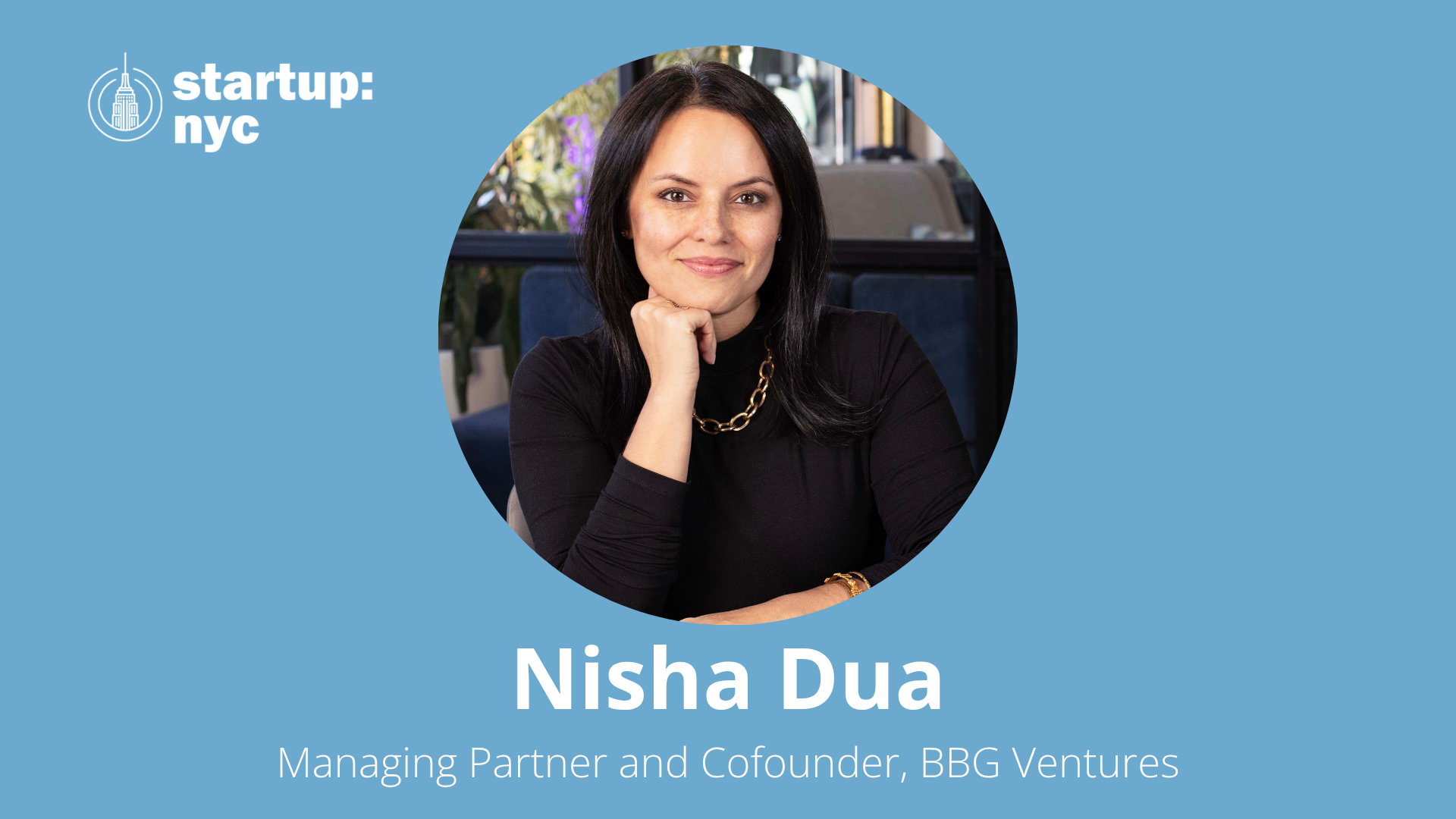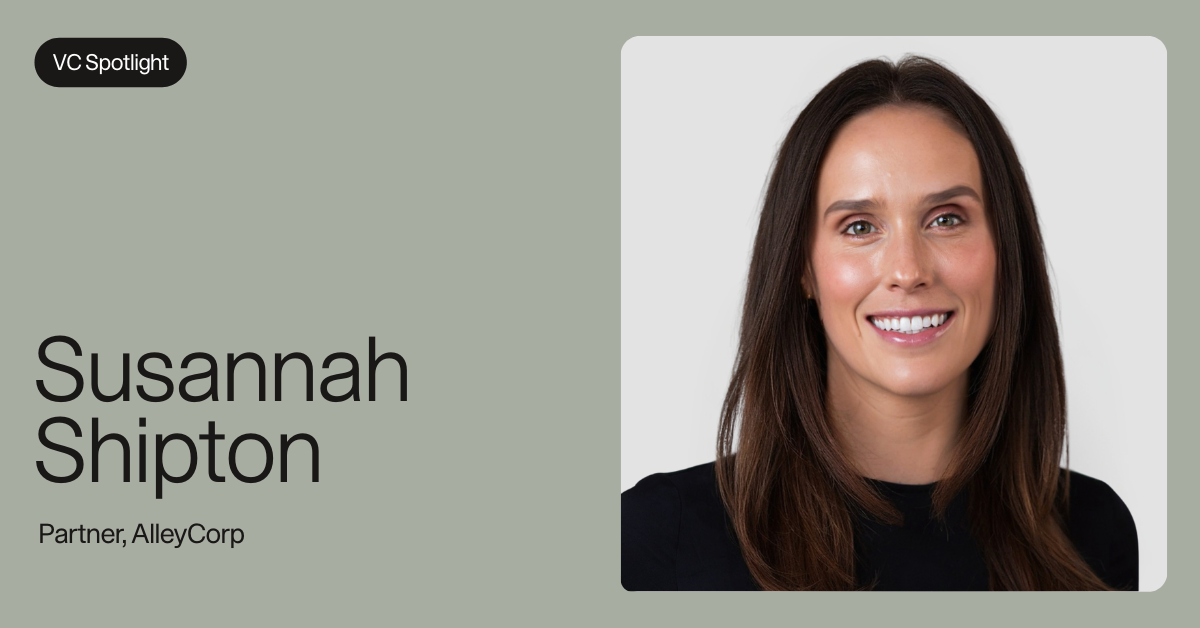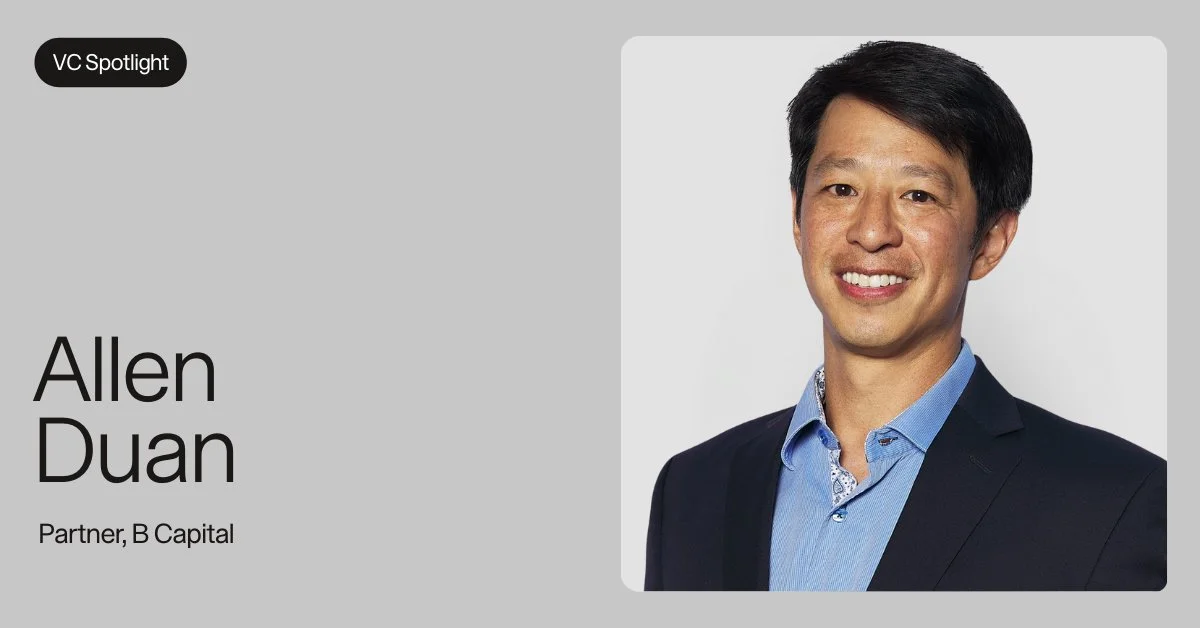VC Spotlight: Nisha Dua, Managing Partner and Cofounder, BBG Ventures
Nisha Dua cofounded BBG Ventures in 2014 to back underestimated founders: “From day one, we’ve believed that identifying which Americans are underserved — and which founders understand them best — drives outsized alpha. We focus on founders across two vectors of founder-market-fit: professional and personal experience — the latter can provide a different kind of earned insight and competitive advantage,” she says.
Last fall, the firm took that thesis a step further and announced a new $60 million fund to back underestimated founders building for the “polycultural future of America.”
The American Polyculture “explores how identity shapes core needs across health, work, financial security, climate, and consumption — and which segments feel most underserved.” It’s the overarching thesis around which Nisha and other VCs at BBG make their investment decisions.
We caught up with Nisha to discuss her career, the top resources she recommends for founders, how the firm’s Polyculture thesis drives its investment strategy, and much more.
–
Where did your career start?
Nisha: My career started as a junior lawyer in Sydney doing public and private M&A at top Australian firm Blake Dawson. I was, frankly, bored by the law — but I realized I was far more interested in the strategic “why” behind transactions and how businesses actually run. That curiosity led me to Bain, where I worked with Fortune 500 companies across TMT, CPG, and financial services. I then jumped into operating, moving to NYC to run strategy and operations for a 1,300-person group across AOL’s portfolio of brands.
You cofounded BBG Ventures in 2014 — what was the catalyst for doing so?
At AOL, I re-founded a media brand for millennial women and then launched a startup that matched 20,000 young women with tech advisors using software. That gave me insight into the power users of that era — women — and made me ask: who was building for them, and who was getting funded to do so? We believed founders with lived experience of the problems they were solving would have an unfair advantage. We launched BBG Ventures to back those overlooked founders — and that thesis has proven out in companies like Spring Health, Chief, and HopSkipDrive in our earliest funds, and more recently in Starface, Canela Media, and Topline Pro.
What stage do you invest at and what’s your average check size?
We invest at the pre-seed and seed stage. Our check sizes range from $500K to $1.5M, and we prefer to lead or co-lead. We also reserve capital to follow on with our highest-conviction companies.
At BBG Ventures, you focus on investing in the “polycultural future of America.” What motivated this emphasis?
From day one, we’ve believed that identifying which Americans are underserved — and which founders understand them best — drives outsized alpha. Over the last few years, we’ve seen the country evolve from a monoculture to a dynamic polyculture — a mosaic of lived experiences where identity is multivariate and fluid — one that demands more nuanced solutions to the economy's biggest areas of opportunity. In 2024, we released The Mind of Polycultural America, a survey of 2,000 Americans across gender, age, race, and income. It explores how identity shapes core needs across health, work, financial security, climate, and consumption — and which segments feel most underserved. We’re generalist investors who invest across B2B and B2C, united by this overarching thesis.
What’s the most common mistake you see founders make when pitching to investors?
First: Pitching the business you’re building today, rather than the big vision that shows how your company changes the world. We want to hear the paradigm shift.
Second: Leading with product instead of problem. Start with the pain point and why it matters. Bonus points if you’ve lived it — that’s where real insight comes from.
Third: not being able to go deep. Great founders teach us something new with every question. That shows they’ve done the work to really understand the maze they’re in.
What’s an investment from the last 12 months you’re especially excited about?
We first backed Supercircle at the pre-seed, but I’m especially excited about their recent traction. They’re tackling a $50B+ problem: how brands handle excess inventory, returns, and consumer takeback. Most of that ends up in landfill or incinerated. Supercircle’s software and logistics layer turns waste into value — enabling resale, donation, and recycling — and helping brands monetize their waste while delivering on circularity promises.
What are some of the top resources you recommend for founders starting out?
First Round Review archives. Fred Wilson’s AVC blog. Venture Deals by Brad Feld. Harry Stebbings’ 20VC.
What’s your favorite or most frequently used AI tool?
Granola AI has changed my life — the best for meeting notes, detail, and recall. I also use custom GPTs for repetitive tasks to create leverage in my day.
You have a founder or LP in from out of town… where are you taking them?
Balthazar in Soho or Lucien in the East Village. Both are quintessentially New York: buzzy, iconic, and great for conversation over a perfect dry martini with a twist and steak frites.
Choose one: power breakfast, power lunch, or work dinner. Where?
Power breakfast — always. Cecconi’s in NoMad is my go-to. Great light, calm vibe, and a great time of the day to connect 1:1 and share substantive conversation.
And finally… what’s the best slice of pizza in NYC?
Everyone says Scarr’s in the LES, and I believe it — but now that I have a baby, I never make it there to wait in line. My current go-to is F&F in Carroll Gardens from the Frankies team.












